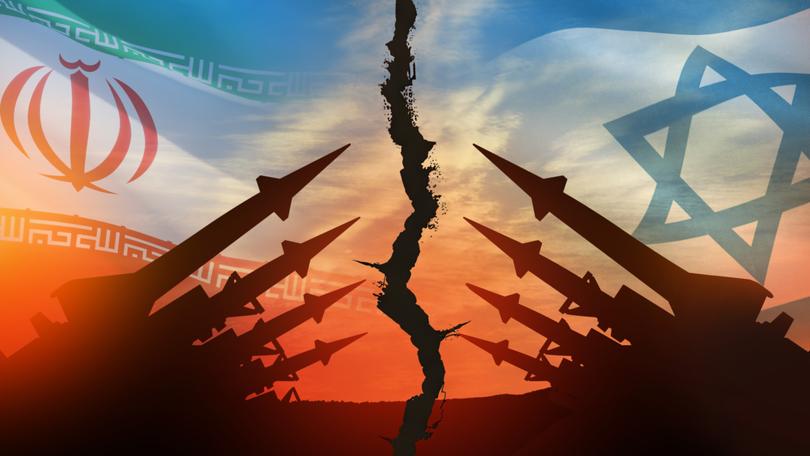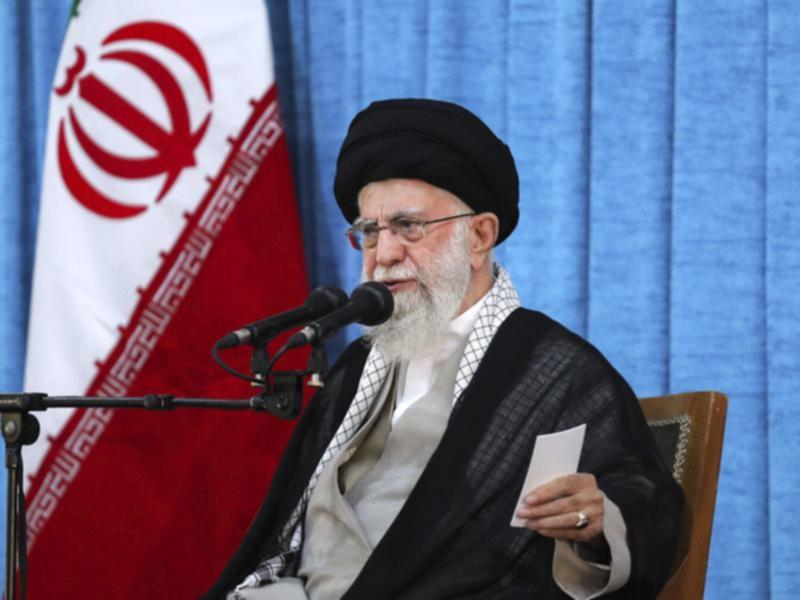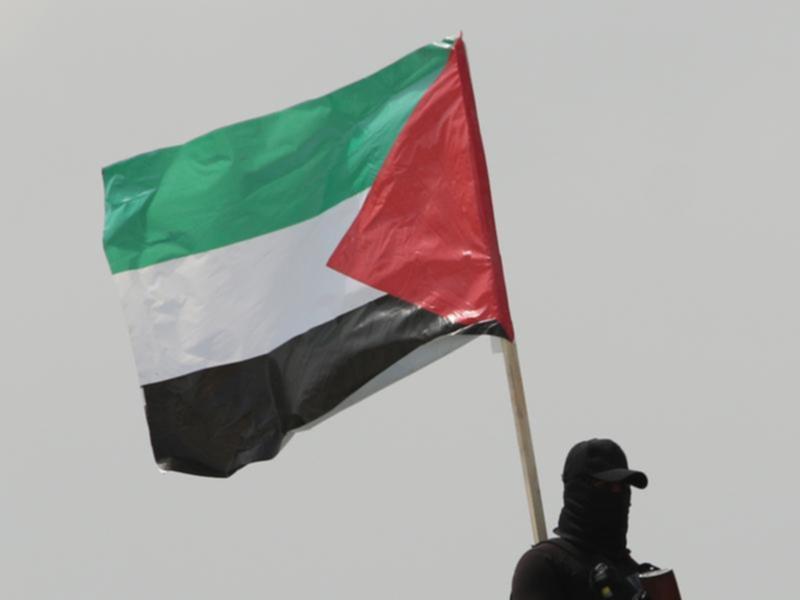THE ECONOMIST: After the decapitation of Hezbollah, Iran could race for a nuclear bomb
The embattled clerical regime might feel the need for stronger deterrence.

When an Israeli bomb killed Hassan Nasrallah, the leader of Hezbollah, last week, it did not just decapitate a fearsome militia that has driven some 60,000 Israelis from their homes with frequent rocket attacks.
It also dealt a hammer blow to Iran’s “axis of resistance”, a constellation of proxy forces that Iran has for decades used to attack both Israel and Western interests in the Middle East.
In addition to its current assault on Hezbollah, Israel’s year-long dismemberment of Hamas in Gaza has vastly diminished Iran’s capacity to cause trouble if threatened.
Sign up to The Nightly's newsletters.
Get the first look at the digital newspaper, curated daily stories and breaking headlines delivered to your inbox.
By continuing you agree to our Terms and Privacy Policy.Those defeats, in turn, may be prompting Iran to fall back on its other main form of deterrence: its nuclear-weapons program.
In recent days, amid Israeli strikes on Hamas, Hezbollah and militants backed by Iran in Yemen, Iranian officials have been insinuating that Israel’s belligerence may induce Iran to develop nuclear weapons.
Others have suggested that Ayatollah Ali Khamenei, Iran’s supreme leader, might rescind an earlier fatwa, or religious edict, ruling out the pursuit of nuclear weapons.
The regime has been expanding the number and sophistication of centrifuges it uses to purify uranium. It now has a big stockpile of near-weapons-grade material.
It is plausible, though not yet likely, that Mr Khamenei might decide that the only way to protect his regime, which is despised by its own citizens and vulnerable to Israeli attack, would be to seek nuclear weapons.
America and Israel have long promised that Iran will not be allowed to build a bomb.
Israel, in particular, appears to have detailed intelligence on the progress of Iran’s nuclear program.
If it were to pick up signs that Iran was crossing a threshold, it might well attack Iranian nuclear sites—something it came close to doing in 2011.
But there is no guarantee that this would succeed.

Israeli insiders, in their more candid moments, acknowledge that the chance to set Iran’s nuclear program back significantly with air strikes may have passed: the relevant facilities are too deeply buried and nuclear know-how too widely dispersed.
Bombing them would set the region ablaze while only delaying the program by months, some argue.
The first question is, what sort of arsenal would Iran seek?
Becoming a country with nuclear arms is more of a spectrum than a single point.
Such weapons require three things: a core of fissile material, such as enriched uranium; a warhead that can house the material and initiate a chain reaction that ends in an explosion; and a delivery system, such as a bomb or missile, to transport the warhead to a target.
Iran might not make all these things at once.
It could produce weapons-grade material without a viable warhead, or it could build a warhead without a suitable delivery system.
Iran could also build a complete weapon but, like Israel, refrain from announcing that it had done so.
The intention behind such opacity is to reap the deterrent benefits of nuclear arms without incurring all the diplomatic costs.
Much would depend on how blatant Iran was.
It could build a weapon entirely covertly, on the assumption that deterrence would still be established because foreign intelligence agencies would have some idea of what it was up to.
It could signal its intentions more clearly by expelling international inspectors, pulling out of the Nuclear Non-Proliferation Treaty (NPT) and renouncing the fatwa.
Or it could conduct a nuclear test, guaranteeing that it had a working device and demonstrating its capability to the world, but also inviting international outrage.

Whether Iran crossed the nuclear threshold openly or furtively, it would then have to choose how many bombs to build and how to deploy them.
It could, like Israel in the 1960s, build just a handful of devices in the hope that sympathetic powers would come to its aid when it was threatened to avert a nuclear war.
Iran’s problem is that it has no clear patrons: it is not certain that Russia would step in to save the regime. A second option would be to emulate India.
That would involve building a larger, though still modest, arsenal, which could survive an enemy’s first strike, allowing subsequent retaliation.
A decade ago many experts and officials thought that the Indian option was Iran’s likeliest course.
It would appeal to Iran’s leaders, who could maintain close control over the weapons — as they did with chemical weapons in the past — rather than devolving authority to use them to commanders in the field.
In recent years, however, Iran’s calculations may have changed.
The military gap with Israel appears to have widened. Worse, the regime is more vulnerable at home, with mounting dissent.
It is also becoming bolder militarily, as it showed when it launched missiles at Pakistan in January and Israel in April.
An Iran that has decided to build nuclear weapons, perhaps in the aftermath of Mr Khamenei’s death, is one in which the armed forces are probably more powerful, exacerbating these tendencies.
Iran’s emboldened generals may prefer a third option: the Pakistani model, in which they would build a much larger arsenal—hundreds rather than tens of warheads—designed to be used first and early in a conflict to ward off even minor conventional military threats.
That might require building small nuclear weapons, dispersing them widely to ensure they could be used in a crisis and delegating the authority to use them to commanders in the field.
The choice of posture relates to a second question: how would a nuclear capability shape Iran’s behaviour?
In 1981 Kenneth Waltz, a political scientist, published an essay entitled, The Spread of Nuclear Weapons: More May Be Better, which argued that countries tended to become more secure and thus more cautious when armed with nuclear weapons.
“It’s been proven without exception that whoever gets nuclear weapons behaves with caution and moderation,” Mr Waltz argued years later, with reference to Iran.
In 2007 Jacques Chirac, France’s president at the time, was phlegmatic about the idea of a nuclear Iran. “What is dangerous about this situation is not the fact of having a nuclear bomb,” he said. “Having one or perhaps a second bomb a little later, well, that’s not very dangerous.”
Many others are horrified by these arguments.
Scott Sagan, another political scientist, has offered two counter-arguments.
One is the risk that nuclear material might be stolen or sold to terrorists, either by rogue members of the regime or with its blessing.
The second is that the weapons might serve as a “nuclear shield”, which would allow Iran to become more aggressive, safe in the knowledge that it could not be attacked in response.
That is just what happened with Pakistan, Mr Sagan has argued: the country’s armed forces allowed paramilitary groups and disguised troops to encroach on Indian-controlled territory in 1999, in part because Pakistan’s acquisition of nuclear weapons the year before had made its top brass more confident.
Similarly North Korea, having conducted its first nuclear test in 2006, torpedoed a South Korean ship in 2010.
How would these dynamics play out in Iran?
It, like Pakistan, has a long history of funding, arming and supporting armed groups to compensate for conventional military weakness and to put pressure on its adversaries, Israel foremost.
The regime would not want to share nuclear technology with proxies, as much as some militant groups might like to syphon off some nuclear material via sympathetic members of the Iranian security forces.
But it could well decide that the immunity afforded by nukes would allow it to redouble its support for proxy groups and to encourage those groups to intensify pressure on Israel.
This issue is not clear-cut, though.
Nuclear weapons offer security, but not complete immunity from attack.
Argentina invaded the Falkland islands in 1982 despite Britain’s nuclear capability.
Iran’s own missile strikes on Israel and Pakistan, both nuclear-armed states, are proof that nuclear shields have holes.
Moreover, Pakistan has tended to host Islamist proxies on its own soil—and even then India launched air strikes against them in 2019.
Iran has preferred to cultivate foreign groups located far from its borders.
So unless Iran extended a nuclear umbrella over Iraq, Lebanon, Syria and Yemen—an unlikely prospect, not least because it would require a very large arsenal with sophisticated command and control, capable of surviving multiple rounds of strikes—those groups would still be at the mercy of American and Israeli firepower.
That raises the third question: how would others respond to an Iran that had successfully built and deployed nuclear weapons?
In the 1960s America contemplated attacking China’s nascent arsenal. It decided against such a risky operation.
Today Israeli intelligence has clearly burrowed deep into Iran and, with America, might believe it could locate and strike a site where warheads were being assembled or stored.
That in itself could trigger turmoil inside Iran, Iranian retaliation against American bases and Arab states and a wider regional war, perhaps layered on top of existing ones.
In practice, the response might be more muted. “Although an Iranian nuclear test would be condemned across the globe and lead to a temporary spike in support for new penalties against Tehran,” says Eric Brewer of the Nuclear Threat Initiative, an advocacy group, “enthusiasm would wane in the subsequent months and years.”
Iran is already subject to many sanctions; China and Russia would help insulate it from any more that might follow.
And if the arsenal could not be eliminated, Iran’s rivals would turn to deterring its use—as America has sought to do in Asia after North Korea acquired nukes in 2006.
America would probably extend its nuclear umbrella over Saudi Arabia, other Arab allies and Israel, none of which currently enjoy formal guarantees.
That step, which would raise many questions—would America, for instance, deploy tactical nuclear weapons to the Middle East, as it does in Europe?—would have two purposes.
One would be to persuade Iran that any use of its weapons would risk the destruction of the regime. The other would be to dissuade America’s friends in the region from pursuing nukes of their own.
Saudi Arabia has long said that it would respond to the development of an Iranian bomb by making one of its own. Egypt, Turkey and the United Arab Emirates (UAE) would all be likely to explore such an option, too.
That does not mean a nuclear arms-race is inevitable.
The UAE wants to cool tensions with Iran and stay away from a regional conflict, not paint a target on its back.
Egypt is insolvent and dysfunctional, and is farther from the threat. Jordan is broke. Even Saudi Arabia would probably prefer American protection to the uncertain pursuit of a bomb, which it might only be able to obtain with Pakistan’s help.
Israel faces a different dilemma. Since the 1960s it has been coy about its nukes, saying only that it would not be the first country to “introduce” nuclear weapons to the region.
Israel would face strong pressure to reverse that policy, publicly declaring its nuclear status despite the inevitable diplomatic backlash. Israeli leaders might also want to advertise their nuclear capability, by showing off the submarines and missiles that carry the country’s bombs.
A nuclear test is another possibility.
This would be risky, cautions Richard Nephew of the Washington Institute for Near East Policy, a think-tank. “If they provided a lot of new information about their alleged weapons programs, they might even expose weaknesses or deficiencies no one thinks they have,” he says
“Keeping that club in the bag may have much greater deterrence value than brandishing it, since everyone assumes they must have some top-flight stuff.”
In any case, the deterrent dynamics between Israel and Iran would be worryingly untested.
America and the Soviet Union had worked together as allies for several years before they began their nuclear stand-off. India and Pakistan had well-established backchannels of communication.
Israel and Iran have no such history.
In the past year their shadow war has turned ever hotter. An Iranian bomb would be a dangerous and unpredictable addition to an already combustible region.
